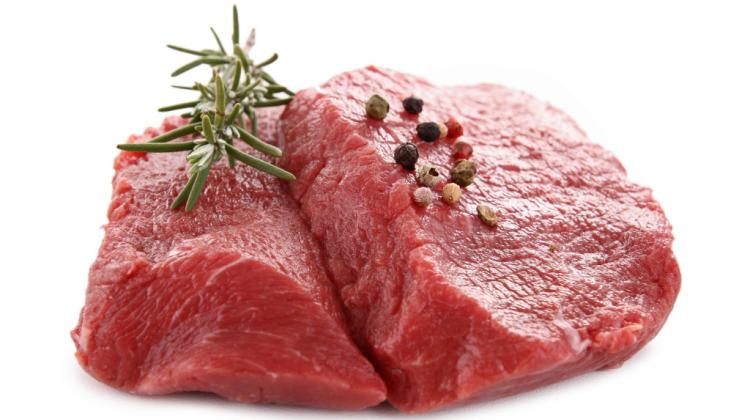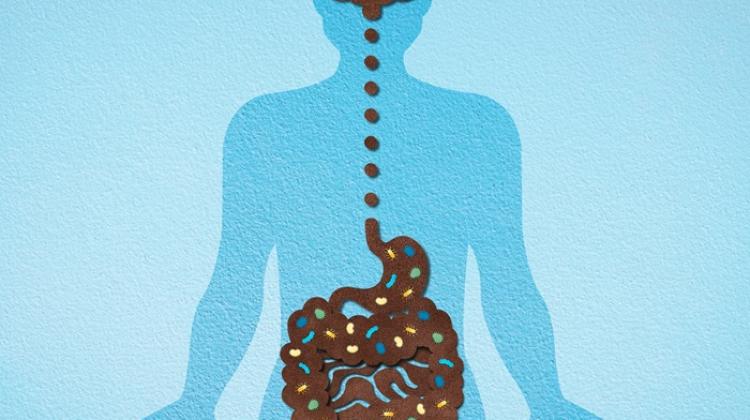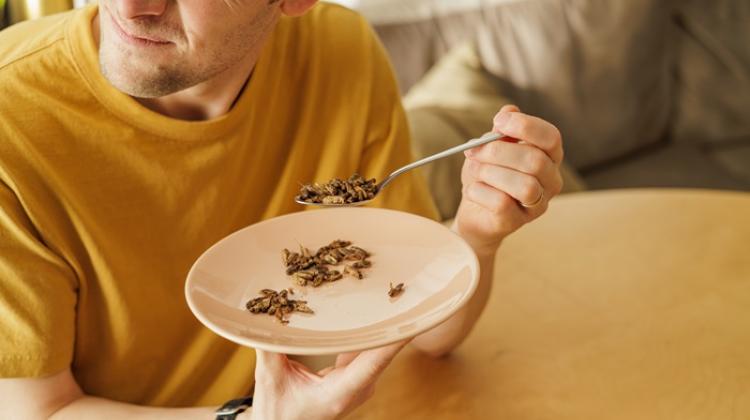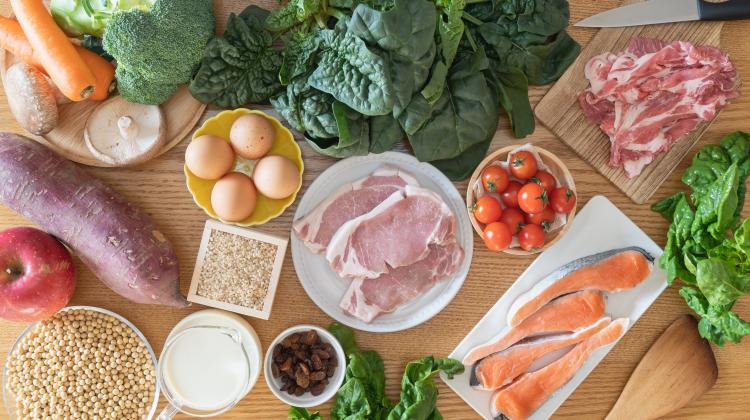Study: Meat and potatoes are still the base of Polish dinner

Nearly 50 percent Poles have meat for dinner, and 42 percent have potatoes. Only around 2 percent Poles reaches for cereal, less than 4 percent eat fish. For breakfast, more than 84 percent choose bread, and only 4 percent milk soup - according to a survey by Polish scientists.
Scientists from the Institute of Philosophy and Sociology PAS - in a study funded by the National Science Centre - looked at the eating habits of Poles. They checked what we eat, at what time, and how various social groups differ in terms of consumed food.
It turned out that meat is the base of a dinner for 48 percent Poles, and only less than 4 percent choose fish. Generally - for 42 percent - addition to dinner are potatoes, much less often rice (almost 4 percent), fries (1.5 percent) and cereal (about 2 percent). 34 percent of us prefer uncooked vegetables and salad for dinner, 16 percent choose boiled and baked vegetables. Poles rarely eat kebab, pizza, burgers, seafood, tarts. The share of each of these dishes does not exceed 1 percent. Almost 40 percent people eat soup for dinner.
The vast majority of Poles - more than 84 percent - include bread in their breakfast. Among those of us who eat a morning meal, almost half eat lunch meats - more than 46 percent. 16.7 percent Poles include yellow, sheep, goat and maturing cheese on the breakfast menu; nearly 14 percent eat cottage cheese and cream cheese, and 8 percent eat eggs.
It turns out that milk soup and cereal, considered typical breakfast dishes, are not as common on the morning menu. The former is chosen by less than 4 percent respondents, the latter by only 5 percent. 26 percent respondents declare eating vegetables for breakfast, close to 5 percent choose sweet breakfast, including jam and honey. Supper menu is very similar.
To the question about preferred kind of food, as many as 60 percent women and close to 65 percent men reply "traditional Polish food". Women prefer foods that contain a large amount of vegetables: nearly 60 percent, and only 35 percent men; light and not too caloric: more than 30 percent women, nearly 15 percent men. Men often choose meat dishes: more than 70 percent, and less than 50 percent women; with a distinctive taste: almost 40 percent men at nearly 25 percent women.
"In Polish society there are no clear class divisions that apply to all foods, but in the case of some foods these divisions exist. The middle class (senior executives and professionals, white-collar workers and business owners) are less likely to eat meat and soup associated with workers and peasants, and attribute greater importance to milk, breakfast flakes and cheeses" - explain the authors of the study: Prof. Henryk Domański, Dr. Zbigniew Karpiński, Dr. Dariusz Przybysz and Dr. Justyna Straczuk of the Institute of Philosophy and Sociology PAS.
Eating soups is declared by more than 46 percent farmers, and nearly 35 percent small business owners - least of all the groups. Cottage cheese, sweetened and homogenized cheese are most popular among senior management and intelligence (over 31 percent responses), and least popular among skilled workers (nearly 17 percent). Yogurt, kefir, buttermilk and milk are popular among 18 percent white-collar workers and only 8 percent farmers.
Almost all respondents declared eating traditional dishes at least once in life, such as black pudding, salad with mayonnaise or kopytka (potato dumplings) - more than 90 percent representatives of each socio-occupational group. Slightly different is the situation with foreign or exotic food. Eating carpaccio - at least once in your life - was declared by more than 52 percent senior executives and intelligence, but just over 9 percent farmers. More than 27 percent executives and 1.5 percent farmers had tried mussels. The situation was similar with couscous, which more than 63 percent executives and intelligence had tried, and only 14 percent farmers.
The survey was conducted in June, July and autumn 2013 on more than 2.3 thousand people over 15 years of age. It was carried out as part of the National Science Centre grant "Patterns of food, lifestyles and social stratification: comparative perspective", led by Prof. Henryk Domanski.
PAP - Science and Scholarship in Poland, Ewelina Krajczyńska
ekr/ agt/ mrt/
tr. RL
Przed dodaniem komentarza prosimy o zapoznanie z Regulaminem forum serwisu Nauka w Polsce.

















